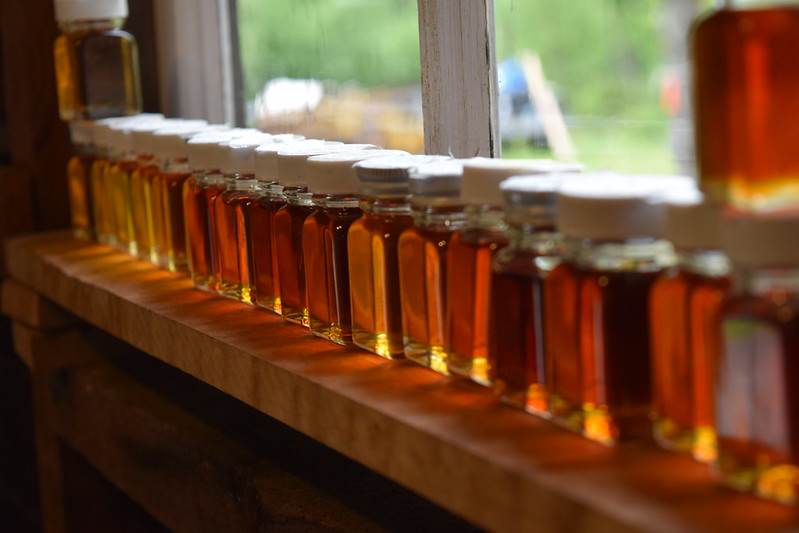Search Results
Results for: 'N'

Who were the first sugar makers? Many believe native Americans were the first to collect sugar from maple trees in North America. In fact, it was probably squirrels. Squirrels have been observed collecting encrusted sugar from the end twigs they n...

Compared to the relatively simple composition of maple sap, maple syrup has over 130 different identified flavor and aroma compounds. The predominant classes of flavor compounds are phenolics, pyrazines, and carbonyl-based compounds. Typically, li...

Summer is here and for maple sugar makers that means contest time. Entering syrup in a contest is a great way to show off your product, make sure your syrup meets standards and earn a class winner or best is show ribbon. There are a few things to ...

In Vermont, Grade A maple syrup is divided into four distinct color classes. Those classes are Golden, Amber, Dark and Very Dark. The lightest grade of syrup, Golden, has the most delicate flavor. A lot of the time it will be made at the beginning...

Syrup clarity is one of the four basics of grading. Syrup that come right off the evaporator is cloudy. Most of the cloudiness found in unfiltered syrup is naturally occurring minerals such as calcium also known as sugar sand or niter. Syrup clari...

The recent period of expansion in the maple industry has seen both established operations grow and many new operations start from scratch. Some real estate listings of land include estimated potential taps. But how many of those taps are actually ...

Late summer, while leaves are still green is a good time to assess the trees in your sugarbush. Weak or declining individuals will show areas of crown dieback. Trees with more than 75% dieback will likely not survive but are still competing for li...

Sugar makers rely on healthy, abundant maple trees to provide sap each spring. Taken together a group of maple trees managed for sap collection is called a sugarbush. Developing a healthy, productive sugarbush takes time and effort. Forests are hi...